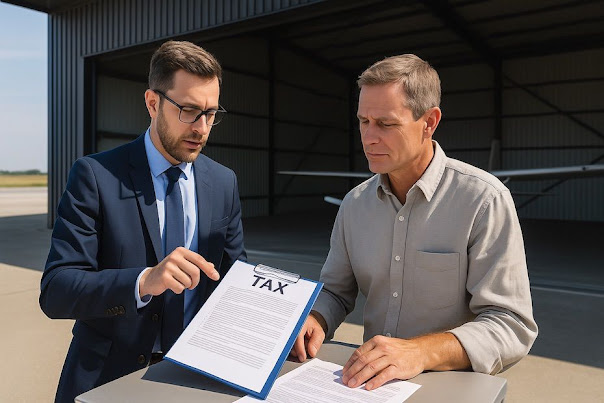Beyond the Airplane: Exploring Career Pathways in the Aviation Industry
Air Traffic Control: Managing the Skies
One of the most crucial roles in aviation is air traffic control. I’ve worked with controllers who manage the movement of aircraft in and out of busy airports and across vast airspaces, ensuring safety and efficiency. They communicate directly with pilots, coordinating takeoffs, landings, and routing to prevent collisions. It’s a high-stakes job that demands intense focus and quick decision-making.
Becoming an air traffic controller requires extensive training and certification, typically through an FAA-approved program. The work environment is high-pressure, with controllers handling multiple aircraft at once. However, the rewards are significant—job stability, a strong salary, and the knowledge that every shift directly impacts aviation safety.
Aircraft Maintenance Technicians: Keeping Planes Airworthy
Without maintenance technicians, no plane would ever leave the ground. These professionals ensure that aircraft meet stringent safety and performance standards. I’ve worked alongside technicians who meticulously inspect and repair aircraft, tracking every detail to avoid potential failures. Their expertise covers everything from hydraulic systems to avionics, ensuring passengers and crew remain safe.
To enter the field, most technicians earn an Airframe and Powerplant (A&P) license or an equivalent certification. The job requires strong mechanical skills, problem-solving abilities, and a commitment to following strict safety protocols. Given the complexity of modern aircraft, many specialize in specific systems, making them indispensable to airlines and private operators alike.
Aerospace Engineering: Designing the Future of Flight
Innovation in aviation depends on aerospace engineers. They design, test, and refine everything from commercial aircraft to unmanned aerial vehicles (UAVs). I’ve seen firsthand how engineers collaborate with manufacturers and airlines to improve fuel efficiency, aerodynamics, and environmental sustainability. Their work pushes aviation technology forward.
This career path requires an engineering degree, often with specialization in areas such as propulsion systems, avionics, or aerodynamics. Engineers play a vital role in shaping the future of aviation, particularly with the rise of electric and hydrogen-powered aircraft. The opportunities in this field are vast, spanning both commercial and defense aviation sectors.
Aviation Safety and Security: Protecting Passengers and Cargo
Safety and security are at the heart of aviation. Aviation safety specialists analyze incidents and enforce regulations, while security professionals ensure that airports and airlines remain protected from threats. I’ve worked with safety experts who develop protocols to reduce risks and improve emergency response strategies.
Many professionals in this field come from law enforcement or military backgrounds, but others enter through specialized training programs. The work is constantly evolving, incorporating cybersecurity and new technologies like AI-driven threat detection. With global travel increasing, the demand for aviation security experts is stronger than ever.
Aviation Business and Management: Driving Industry Growth
Beyond the technical roles, aviation needs business professionals to manage operations, finances, and logistics. I’ve seen how aviation managers oversee airline profitability, airport operations, and regulatory compliance. They handle everything from scheduling flights to managing fuel costs, ensuring smooth airline performance.
Aviation management degrees provide a strong foundation for entering this field, with coursework covering economics, logistics, and strategy. Careers in this area include airline operations management, airport administration, and aircraft leasing. As air travel grows, skilled business professionals will be essential in keeping airlines competitive.
Meteorology and Aviation Weather Forecasting
Weather plays a major role in aviation safety. Meteorologists provide critical forecasts that help airlines and pilots make flight decisions. I’ve worked with weather professionals who analyze wind patterns, thunderstorms, and turbulence risks to optimize flight routes and improve safety.
This field requires expertise in meteorology, physics, and data analysis. Many aviation meteorologists work for government agencies, airlines, or private weather firms. Their work reduces delays, prevents weather-related accidents, and improves overall flight efficiency.
Unmanned Aerial Systems (UAS) and Drone Operations
The rise of drones has opened up new aviation career paths. Drone operators use unmanned aerial systems for aerial photography, cargo transport, infrastructure inspections, and even emergency response. I’ve worked with drone pilots who map terrain, assist in disaster recovery, and monitor environmental changes.
To work in commercial drone operations, pilots must obtain certification, such as the FAA’s Part 107 Remote Pilot Certificate. Companies specializing in UAS technology continue to expand, offering roles in piloting, data analysis, and drone system engineering. As drone use increases, so do the career possibilities in this exciting field.
Alternative Careers in Aviation
- Air Traffic Controllers: Manage flight paths and airspace safety.
- Aircraft Maintenance Technicians: Inspect and repair aircraft for safe operations.
- Aerospace Engineers: Design and develop aviation technology.
- Aviation Safety Experts: Improve security and risk management.
- Aviation Business Managers: Oversee airline operations and logistics.
- Meteorologists: Provide flight-critical weather forecasts.
- Drone Operators: Utilize unmanned aerial systems for various industries.
In Conclusion
Aviation careers extend far beyond piloting. From air traffic control to aerospace engineering, each role is vital to the industry’s success. I’ve seen how these careers shape air travel, ensuring safety, efficiency, and innovation. As aviation continues to evolve, new opportunities will emerge, offering fulfilling and dynamic career paths for those passionate about flight.
From air traffic control to aerospace engineering, aviation offers endless opportunities. Explore the future of flight! Discover more: medium.com/@chrysilioschrysiliou




Comments
Post a Comment